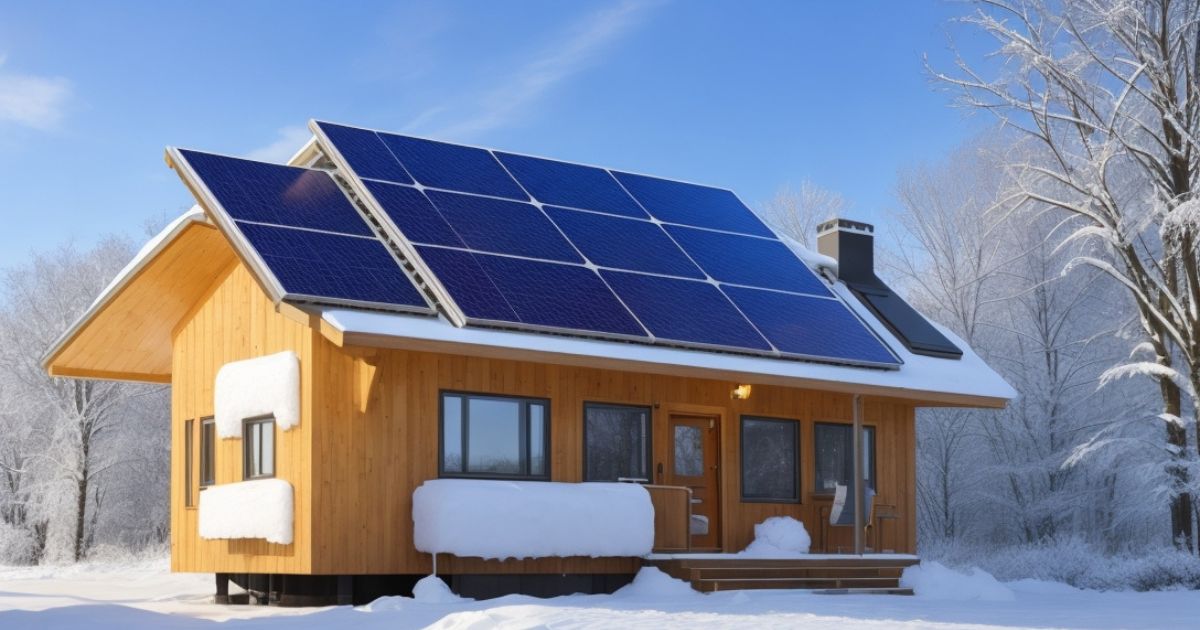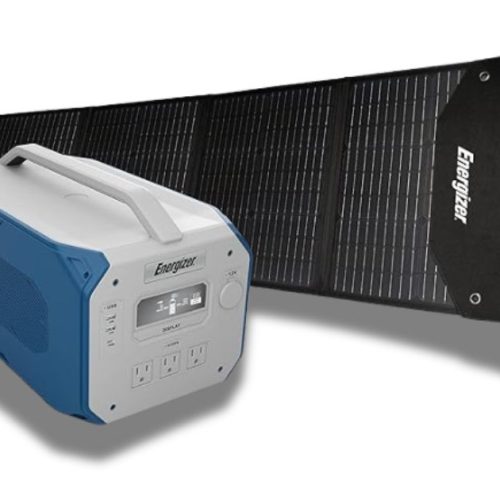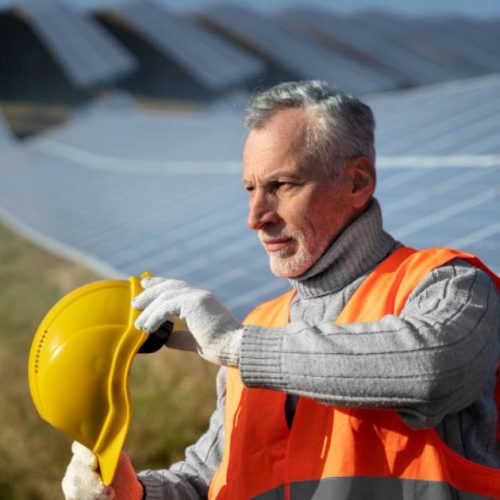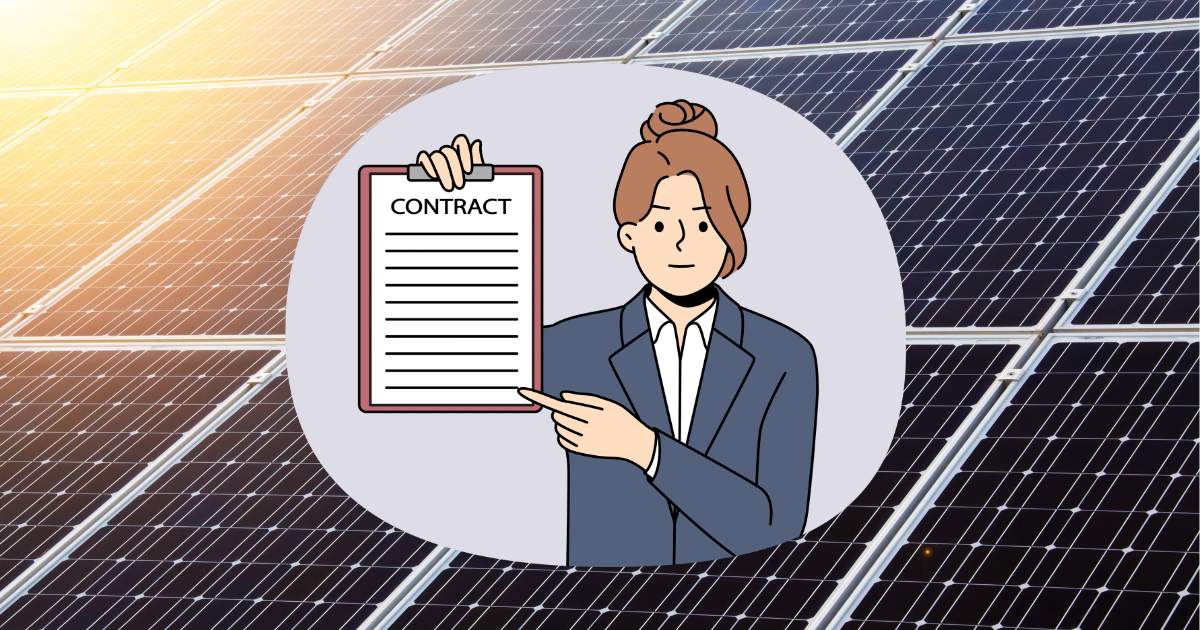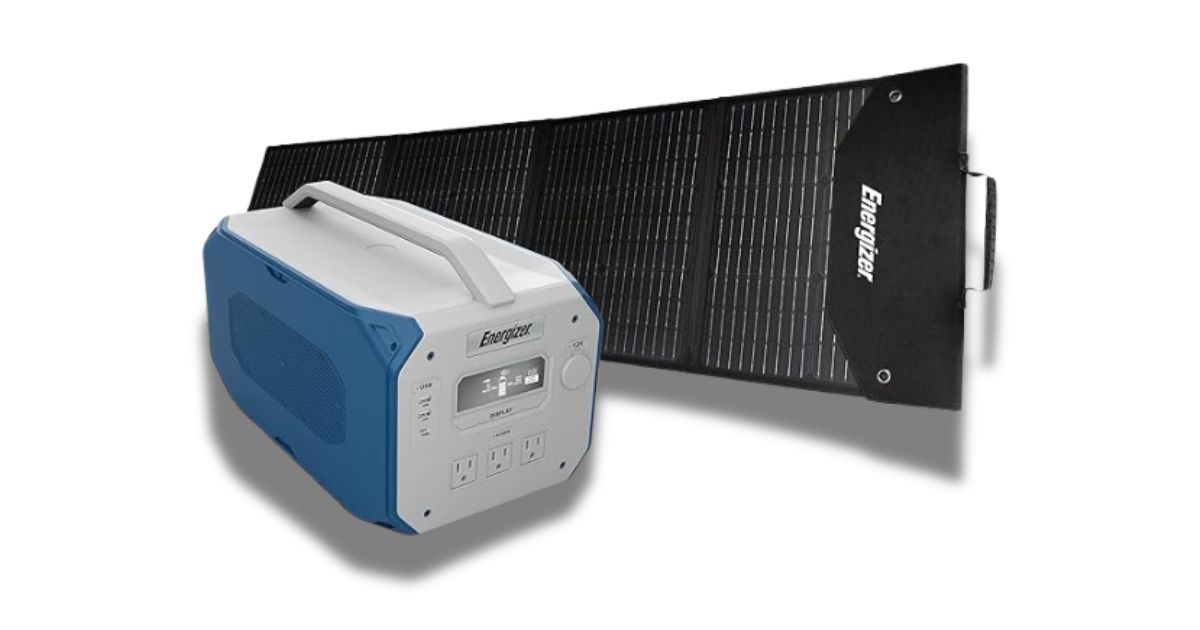Yes, solar panels work in the UK in winter. They generate electricity even on cloudy days, although it is normal that the output electricity will be less.
Solar panels can generate electricity in daylight rather than direct sunlight, making them useful even on the short, overcast days of the UK winter. Although energy production is lower than in the summer months, modern solar panels are designed to capture diffused light. Find out today in our blog guide: Do Solar Panels Work in Winter UK?
This ensures that they still produce electricity efficiently. Advances in solar technology have improved performance in a variety of climates, making solar panels a viable energy source year-round. Snow in the UK rarely affects solar panels, as it usually melts quickly or slides off due to the angle of the panels. Investing in solar panels can reduce energy bills and carbon footprint regardless of the season.

Do solar panels work in cloudy weather?
Solar panels work efficiently even in cloudy weather during the UK winter. Modern technology ensures that they capture sunlight effectively throughout the year.
Winter in the UK often brings gray skies and short days, raising curiosity about the performance of solar panels during this season. Many wonder if these renewable energy sources can still perform well under cloudy skies. Let’s know the details.
Solar panels are designed to capture sunlight and convert it into electricity. But what happens when the sun hides behind the clouds?
- Reduced efficiency: Solar panels generate power on cloudy days, although efficiency decreases.
- Panel Quality: High-quality solar panels can capture scattered light well, even when it’s cloudy, solar panels can generate electricity.
- Consistent performance: They produce less power, but not zero. Even indirect sunlight contributes to electricity production.
- Geographic insight: Countries with frequent cloudy weather, such as Germany, have successfully used solar energy
How clouds affect solar panel output
Clouds affect the amount of sunlight reaching the panels. But how significant is this effect?
Solar panels can still work, albeit less efficiently, in cloudy conditions. They use diffused sunlight to generate electricity. This means that even on cloudy days, they produce energy, although not at full capacity.
Technological Advancements In Solar Panels
Modern solar technology has advanced significantly. New advances ensure better performance even in less-than-ideal weather conditions.
- Advanced materials: The new panels use materials that capture a wider spectrum of light.
- Smart inverters: These optimize the energy conversion process, maximizing output even when sunlight is low.
- Weather resistance: The improved durability and design help the panel maintain efficiency despite weather changes.
- Performance Monitoring: A state-of-the-art system allows real-time tracking, ensuring optimal performance.
Practical Benefits Of Solar Panels In Cloudy Weather
Despite the low efficiency, using solar panels in cloudy weather has several practical advantages.
Solar panels can still produce significant amounts of electricity in cloudy weather. This is especially true for high-quality panels that are designed to perform well in diffuse light conditions. Furthermore, the UK government offers incentives and feed-in tariffs that make solar energy a viable option all year round.
Real-world Examples
Let’s look at some real-world examples of solar panel performance in cloudy areas.
- Germany: A leading user of solar energy despite frequent cloudy days.
Maximizing Solar Panel Efficiency In Winter
There are ways to ensure your solar panels perform at their best during the UK’s winter months.
- Correct Angle: Adjust the tilt of your panel to capture maximum sunlight.
- Regular Maintenance: Keep panels clean and free of snow or debris.
- Energy storage: Use batteries to store excess energy generated during sunny periods.
- System upgrades: Invest in high-efficiency panels and inverters.
By understanding how solar panels perform in cloudy weather, you can make an informed decision about their performance during the UK’s winter months. Solar power remains a sustainable and viable choice, even when the sun isn’t shining brightly.

Solar Panel Efficiency In Winter
Solar panels work efficiently in UK winters, capturing sunlight even on cloudy days. Colder temperatures can actually increase their performance, making winter a viable season for solar power.
Winter often brings shorter days and colder temperatures, leading many to wonder about the effectiveness of solar panels during this season. Despite the cold, the solar panels continue to work effectively See how these panels perform in the UK during the winter months.
How Temperature Affects Solar Panel Efficiency
Temperature plays an important role in the performance of solar panels.
- Cooler temperatures: Panels work more efficiently in cooler climates. Heat can reduce their performance.
- Winter benefits: The UK’s cold weather actually helps the panels produce electricity more efficiently.
- Maximum efficiency: Solar panels perform best at around 25 degrees Celsius, but they can still work well below this temperature.
Impact Of Shorter Days On Solar Energy Production
Winter days are shorter, which means less daylight.
- Fewer sunlight hours: Fewer daylight means fewer hours for panels to generate electricity.
- Decrease in energy production: There is a noticeable decrease in energy production compared to summer.
- Cloud cover: More frequent cloud cover can also affect performance, yet the panels operate in diffused light.
Snow And Ice: Are They A Problem?
Snow and ice may seem like potential problems for solar panels, but they have a minimal impact.
- Snow accumulation: The panels are usually mounted at an angle so that the snow moves away.
- Self-cleaning: Snow can help clear the panel as it melts and moves away.
- Ice formation: Ice can form but usually does not significantly block sunlight.
Maintenance Tips For Winter Efficiency
Keeping solar panels in top shape during winter is essential to maintain their efficiency.
- Regular inspection: Check regularly for any snow or ice accumulation.
- Cleaning Panel: Lightly brush off snow build-up.
- Professional maintenance: Consider a professional check-up before winter to ensure optimal performance.
Solar Panel Technology And Winter Performance
Advances in solar technology have made panels more resilient to winter conditions.
- Modern Materials: New panels are designed to withstand harsh weather conditions.
- Improved efficiency: Technological advances mean better performance in low light.
- Durability: The panels are made to last and perform well in different climates.
By understanding these aspects, homeowners can make the most of their solar panels during the winter months. Winter can bring challenges, but it also offers unique advantages for solar power generation.

Solar Panels In Winter Snow
Solar panels generate electricity in winter UK despite snow. Short daylight and cloudy skies can reduce performance. Snow can reflect sunlight, increasing energy production.
Winter often brings snowy landscapes to the UK, raising questions about the effectiveness of solar panels during these months. Let’s find out how solar panels work in winter snow and what you can expect.
Snow Accumulation On Solar Panels
Snow can seem like a major obstacle for solar panels. However, several factors come into play:
- Self-cleaning effect: Snow usually slides off angled panels.
- Dark surface: panels absorb heat, and snow melts faster.
- Minimal impact: A thin layer of snow does not block all sunlight.
Performance During Snowfall
Solar panels continue to work even when it snows. Here’s how they operate:
- Diffuse light: The panels capture sunlight even on cloudy days.
- Limited reduction: Frost may reduce performance slightly but does not stop production.
- Fast recovery: The panels resume full functionality when the snow is cleared.
Maintenance Tips For Winter
Some attention is needed to ensure optimal performance during the snowy months:
- Regular check: Inspect panels for snow accumulation.
- Safe Cleaning: Use a soft brush to remove snow.
- Professional help: Hire experts if snowmaking levels are excessive.
Benefits Of Winter Sunlight
Despite the cold, winter sunlight can still be effective:
- Crisp air: Cold weather improves panel performance.
- Short days: Even limited sunlight can be converted into energy.
- Consistent Output: The panel works as long as there is daylight.
With proper care and understanding, solar panels can work effectively in the UK during winter snow. The benefits they provide make them a worthwhile investment throughout the year.
Solar Panel Output Winter Vs Summer
Solar panels work efficiently in UK winters despite the reduced daylight hours. Winter sunlight can still generate significant energy. The panels continue to convert available light into energy throughout the year.
Winter may seem like a challenging time for solar panels, but they can perform well in winter. Let’s explore the differences in solar panel output between winter and summer in the UK
Solar Panel Efficiency In Winter
Solar panels continue to generate electricity in winter. Here are some points to consider:
- Temperature: Cooler temperatures can actually improve solar panel efficiency.
- Snow: Light snow can reflect sunlight, increasing output, but heavy snow can block the panels.
- Daylight hours: Shorter days reduce overall sunlight exposure, affecting energy production.
Solar Panel Output In Summer
In contrast, summer provides ideal conditions for solar panels. Here’s why:
- Longer daylight hours: More sunlight means more energy production throughout the day.
- Higher sun angle: The sun is higher in the sky, providing more direct sunlight.
- Warm weather: Warm temperatures create the best conditions, although extreme heat can reduce performance somewhat.
Comparison Of Energy Production
Comparison of energy production between seasons helps measure overall efficiency.
- Winter Output: Generally lower due to shorter days and potential snow coverage.
- Summer output: generally higher due to longer days and more direct sunlight.
- Annual balance: The panels can still generate significant energy year-round, adjusting for seasonal differences.
Tips For Maximizing Winter Performance
To ensure optimal performance in winter, follow these simple tips:
- Regular maintenance: Clean the panel to remove snow and debris.
- Optimal placement: Make sure the panels are angled correctly to capture maximum sunlight.
- Monitoring: Track performance to identify and resolve issues quickly.
By understanding these factors, you can maximize the performance of your solar panels year-round.

How Much Efficiency Do Solar Panels Lose In Winter?
Solar panels in the UK maintain efficiency in winter, losing only 10-20%. Cold weather can actually improve their performance. Snow can reflect sunlight, thus increasing energy production.
Winter in the UK often raises concerns about the performance of solar panels. Many people wonder if the colder months significantly affect their energy production. Let’s find out how much efficiency solar panels lose in the winter season.
Cloud Coverage And Light Intensity
The UK experiences short days and cloudy skies in winter. This can reduce the amount of sunlight reaching the panel.
- Less Daylight: Less daylight hours means less time for panels to absorb sunlight.
- Increased cloud cover: Cloudy skies can block sunlight, reducing energy production.
- Low light intensity: The winter sun is less intense, affecting the performance of solar panels.
Temperature Effects
Interestingly, cold temperatures can be beneficial for solar panels. Contrary to many assumptions, panels can perform better in cooler climates.
- Cooler Temperatures: Solar panels are more efficient at lower temperatures.
- Less heat-related damage: High temperatures can reduce the efficiency of solar cells.
- Potential for higher output: Panels can produce more power in cooler, sunnier conditions.
Snow Coverage
Snow can be a concern, but it doesn’t necessarily mean a significant reduction in efficiency. Here’s why:
- Snow Reflection: Snow can reflect light, increasing the panel’s exposure to sunlight.
- Self-cleaning effect: Snow slides off inclined panels, cleaning them in the process.
- Minimal Clogging: Snow rarely sticks for long, especially on tilt panels.
Seasonal Sun Angle
The angle of the sun changes with the seasons. This affects how much direct sunlight the panels receive.
- Low Sun Angle: The sun is low in the sky during winter.
- Reduced direct sunlight: The panels receive sunlight at a steep angle, which can reduce efficiency.
- Adjusted panel tilt: Properly angled panels can reduce some efficiency losses.
Efficiency Metrics
Solar panels lose some efficiency in winter, but the drop is manageable. On average, panels can still perform well with the right setup
- Average efficiency loss: Most panels experience about 10-20% efficiency loss.
- Location-specific factors: Efficiency loss can vary depending on geographic location and weather patterns.
- Long-term viability: Annual energy production remains viable, even if reduced in winter.
Understanding these factors can help you optimize solar panel performance during the UK winter months. Proper installation and maintenance are key to maximizing efficiency year-round.
Frequently Asked Questions Do Solar Panels Work in Winter UK
How Much Electricity Does A Solar Panel Produce In Winter In The UK?
A solar panel in the UK produces around 30-50% less electricity in winter than in summer, on average 1-3 kWh per day.
How Effective Are Solar Panels In The Winter?
Solar panels work efficiently in winter. Cold temperatures can actually improve their performance. Snow can reflect sunlight, increasing energy production. Shorter daylight can reduce total energy production but overall, solar panels remain effective.
Do Solar Panels Work On Cloudy Days In The UK?
Yes, solar panels work on cloudy days in the UK. They produce less energy but still generate electricity. Solar technology captures diffused sunlight, ensuring efficiency even in cloudy conditions.
Would A Solar Panel Work If It Is Cold Outside?
Yes, solar panels work in cold weather. They work more efficiently in cooler temperatures, provided they get enough sunlight. Cold climates can be beneficial for solar energy production.
Conclusion
Winter in the UK does not hinder the performance of solar panels. They generate energy even in winter, even during short daylight hours. Investing in solar energy offers year-round benefits. Proper maintenance ensures optimum performance. Use the sun’s energy regardless of the season for a sustainable and cost-effective energy solution.
